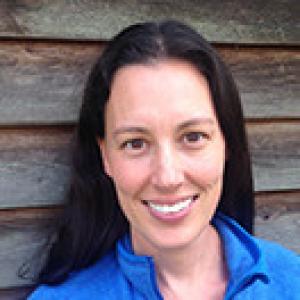Earth Observation of Wetlands - Unlocking the promise of tomorrow from patterns of the past
Wetlands are widely recognized as important ecosystems that provide many critical services for both natural communities and human society, including nutrient cycling, wildlife provisioning, water storage & filtration, carbon sequestration, agriculture & recreation, and critical habitat for mammals, birds, and amphibians. Wetlands are also thought to be among the most sensitive ecosystems to climate change. Their hydrology, structure, and function all respond dynamically to changes in temperature and precipitation such as those predicted for the coming century, and these changes can exacerbate existing stresses, particularly in humanized landscapes. As we begin to feel the impacts of a changing climate wetlands will continue to play a critical role in mitigating the impacts of climate change. However, understanding the role and response of wetlands across Washington State is challenging due to the high diversity among wetlands and across ecoregions as well as the lack of data across broad spatial and temporal extents. This challenge has hindered our collective ability to understand, manage, and adaptively plan for wetlands and threatens to compound the massive losses of wetlands and wetland function which have already occurred. This talk will focus on how satellite and aerial remote sensing can help fill the gaps in our understanding of the role and response of wetlands under a changing climate in Washington State. I will also draw on my recent work with Digital Earth Africa to show how powerful remote sensing tools are providing insight in how wetlands are changing across the African continent and can be a tool for adaptive management.

About the Speaker

Dr. Meghan Halabisky is a remote sensing ecologist who studies earth’s dynamic patterns and processes with a focus on freshwater wetland ecosystems. She is a research scientist at the University of Washington and the Senior Science Advisor for Digital Earth Africa. Her interests include development of new remote sensing techniques for improved mapping and habitat inventory, spatiotemporal analysis of ecosystem dynamics, monitoring landscape change, and projecting climate change impacts. Dr. Halabisky has long time experience working with researchers, practitioners, policymakers, and other end users to ensure that Earth Observation products are fit-for-purpose, easily understood, and ultimately have impact. Meghan has a background in conservation management, a concurrent Master’s – M.S./M.P.A. from the Evans School of Public Policy and Governance at the University of Washington (UW) and a PhD in landscape ecology and remote sensing with the UW School of Environmental and Forest Sciences. Meghan has an undergraduate degree from the College of the Environment at Western Washington University.
Environmental Speaker Series
The Environmental Speaker Series is hosted by the College of the Environment at Western Washington University.
The Series is free and open to the public. Talks are held each Thursday at 4:30 pm in Academic Instructional Center West room 204 - AW-204. Talks will also be streamed via zoom. Register with the Alumni Association for the zoom link. Paid parking is available in lot C.
Learn more about the Environmental Speaker Series
Subscribe to the Email List